
THE VOICE OF INTERNATIONAL LITHUANIA
|
VilNews has its own Google archive! Type a word in the above search box to find any article.
You can also follow us on Facebook. We have two different pages. Click to open and join.
|
Author Archive
- Posted by - (5) Comment

The term Fourth Estate refers to the press,
both in its explicit capacity of advocacy
and in its ability to frame political issues.
VilNews was several years ago established as a newsletter for Vilnius International Club (founded 2001). Over the years, the newsletter got attention and readers from a worldwide audience far beyond the spheres of the
Against this background, it was in September 2010 decided that VilNews should be separated from the club and established as a separate corporation and publisher, with the aim to turn the newsletter into an online e-magazine with a broad scope of issues and coverage.
Today's vision for VilNews is to develop and maintain an e-publication that should be viewed as a good, strong, independent, democratic and outspoken Fourth Estate media in and for Lithuania, founded on professional journalism and reflected comment articles.
VilNews as e-magazine shall continue the line of the newsletter, to be critical of the negative that is still going on in this country, while increasingly trying to find positive stories and interesting angles on events and characteristics from both past and present. Another goal is that VilNews shall
VilNews has got amazingly great support and response from readers around the world. This fact makes us confident that we will continue to develop VilNews' position
- Bookmark :
- Digg
- del.icio.us
- Stumbleupon
- Redit it
- Posted by - (5) Comment
VilNews code of ethics
Each of our editors and editorial staff members are required to be familiar with these ethical standards, and to base their practice on this code. The ethical practice comprehends the complete journalistic process from research to publication.
1. The Role of the Press in Society
1.1. Freedom of Speech, Freedom of Information and Freedom of the Press are basic elements of a democracy. A free, independent press is among the most important institutions in a democratic society.
1.2. The press has important functions in that it carries information, debates and critical comments on current affairs. The press is particularly responsible for allowing different views to be expressed.
1.3. The press shall protect the freedom of speech, the freedom of the press and the principle of access to official documents. It cannot yield to any pressure from anybody who might want to prevent open debates, the free flow of information and free access to sources. Agreements concerning exclusive event reporting shall not preclude independent news reporting.
1.4. It is the right of the press to carry information on what goes on in society and to uncover and disclose matters, which ought to be subjected to criticism. It is a press obligation to shed critical light on how media themselves exercise their role.
1.5. It is the task of the press to protect individuals and groups against injustices or neglect, committed by public authorities and institutions, private enterprises, or others.
2. Integrity and Responsibility
2.1. The legally responsible editor carries personal and full responsibility for the material contained in the publication, no matter the form.
2.2. Each editorial desk and each employee must guard their own integrity and credibility in order to be free to act independently of any persons or groups who - for ideological, economic or other reasons - might want to exercise an influence over editorial matters.
2.3. Members of the editorial staff must not accept commissions or offices, financial support or dual roles creating conflicts of interest in relation to their editorial tasks. Be open on matters that could influence the credibility of editorial staff members.
2.4. Members of the editorial staff should not use their position to achieve personal gains.
2.5. A member of the editorial staff cannot be ordered to write or do anything, which is contrary to his or her convictions.
2.6. Reject any attempt to break down the clear distinction between advertisements and editorial copy. Advertisements intended to imitate or exploit an editorial product, should be turned down, as should advertisements undermining trust in the editorial integrity and the independence of the press.
2.7. Never promise editorial favours in return for advertisements. The material is published as a result of editorial considerations. See to it that the vital distinction between journalism and commercial communication is being maintained upon employment of web links and other connective means.
2.8. It is a breach of good press conduct to let sponsorship affect editorial activity, contents and presentation.
2.9. Members of the editorial staff may not accept assignments from anyone but the heads of the editorial staff.
3. Journalistic Conduct and Relations with the Sources
3.1. The source of information must, as a rule, be identified, unless this conflicts with source protection or consideration for a third party.
3.2. Be critical in the choice of sources, and make sure that the information provided is correct. It is good press practice to aim for diversity and relevance in the choice of sources. If anonymous sources are used, or the publication is offered exclusivity, especially stringent requirements must be imposed on the critical evaluation of the sources. Particular caution should be exercised when dealing with information from anonymous sources, information from sources offering exclusivity, and information provided from sources in return for payment.
3.3. Good press conduct requires clarification of the terms on which an interview is being carried out. This also pertains to adjacent research.
3.4. Protect the sources of the press. The protection of sources is a basic principle in a free society and is a prerequisite for the ability of the press to fulfil its duties towards society and ensure the access to essential information.
3.5. Do not divulge the name of a person who has provided information on a confidential basis, unless consent has been explicitly given by the person concerned.
3.6. In consideration of the sources and the independence of the press, unpublished material as a main rule should not be divulged to third parties.
3.7. It is the duty of the press to report the intended meaning in quotes from an interview. Direct quotes must be accurate.
3.8. Changes of a given statement should be limited to corrections of factual errors. No one without editorial authority may intervene in the editing or presentation of editorial material
3.9. Proceed tactfully in journalistic research. In particular show consideration for people who cannot be expected to be aware of the effect that their statements may have. Never abuse the emotions or feeling of other people, their ignorance or their lack of judgment. Remember that people in shock or grief are more vulnerable than others.
3.10. Hidden cameras/microphones or false identity may only be used under special circumstances. The condition must be that such a method is the only possible way to uncover cases of essential importance to society.
3.11. The press shall as a rule not pay sources or interviewees for information. Exercise moderation when paying a consideration for news tips. It is incompatible with good press practice to employ payment schemes designed to tempt people, without due cause, to invade the privacy of others or to disclose sensitive personal information.
4. Publication Rules
4.1.Make a point of fairness and thoughtfulness in contents and presentation.
4.2. Make plain what is factual information and what is comment.
4.3. Always respect a person's character and identity, privacy, race, nationality and belief. Never draw attention to personal or private aspects if they are irrelevant.
4.4. Make sure that headlines, introductions and leads do not go beyond what is being related in the text. It is considered good press conduct to reveal your source when the information is quoted from other media.
4.5. In particular avoid presumption of guilt in crime and court reporting. Make it evident that the question of guilt, whether relating to somebody under suspicion, reported, accused or charged, has not been decided until the sentence has legal efficacy. It is a part of good press conduct to report the final result of court proceedings, which have been reported earlier.
4.6. Always consider how reports on accidents and crime may affect the victims and next-of-kin. Do not identify victims or missing persons unless next-of-kin have been informed. Show consideration towards people in grief or at times of shock.
4.7. Be cautious in the use of names and photographs and other clear identifiers of persons in referring to contentious or punishable matters. Special caution should be exercised when reporting cases at the early stage of investigation, cases concerning young offenders and cases in which an identifying report may place an unreasonable burden on a third party. Identification must be founded on a legitimate need for information. It may, for instance, be legitimate to identify someone where there is imminent danger of assault on defenceless individuals, in the case of serious and repeated crimes, if the identity or social position of the subject is patently relevant to the case being reported on, or where identification protects the innocent from exposure to unjustified suspicion.
4.8. Reporting on children, it is considered good press conduct to assess the implications that media focusing could cause in each case. This also pertains when the person in charge or parent, has agreed to exposure. As a general rule the identity of children should not be disclosed in reports on family disputes or cases under consideration by the childcare authorities or by the courts.
4.9. Be cautious when reporting on suicide and attempted suicide. Avoid reporting that is not necessary for meeting a general need for information. Avoid description of methods or other matters that may contribute to provoking further suicidal actions.
4.10. Exercise caution when using photos in any other context than the original.
4.11. Protect the credibility of the journalistic photograph. Photos used as documentation must not be altered in a way that creates a false impression. Manipulated photos can only be accepted as illustrations if it is evident that it in actual fact is a picture collage.
4.12. The use of pictures must comply with the same requirements of caution as for a written or oral presentation.
4.13. Incorrect information must be corrected and, when called for, an apology given, as soon as possible.
4.14. Those who have been subjected to strong accusations shall, if possible, have the opportunity to simultaneous reply as regards factual information. Debates, criticism and dissemination of news must not be hampered by parties being unwilling to make comments or take part in the debate.
4.15. Those who have been the subject of an attack shall have the chance to reply at the earliest opportunity, unless the attack and criticism are part of a running exchange of views. Any reply should be of reasonable length, be pertinent to the matter and seemly in its form. The reply can be refused if the party in question has rejected, without an objective reason, an offer of presenting a contemporaneous rejoinder on the same issue. Replies and contributions to the debate should not be accompanied by polemic editorial comment.
4.16. Beware that digital publication pointers and links could bring you to other electronic media that do not comply with the Ethical Code. See to it that links to other media or publications are clearly marked. It is considered good press conduct to inform the users of interactive services on how the publication registers you, and possibly exploits your use of the services.
4.17. Should the editorial staff choose not to pre-edit digital chatting, this has to be announced in a clear manner for those accessing the pages. The editorial staff has a particular responsibility, instantly to remove inserts that are not in compliance with the Ethical Code.
The VilNews Code of Ethics are identical with the:
CODE OF ETHICS OF THE NORWEGIAN PRESS
Ethical Code of Practice for the Press (printed press, radio, television and net publications). Adopted by the Norwegian Press Association November 23th, 2007.
- Bookmark :
- Digg
- del.icio.us
- Stumbleupon
- Redit it
- Posted by - (0) Comment
First Kempinski Hotel
for the Baltic states

THE KEMPINSKI HOTEL CATHEDRAL SQUARE
IN VILNIUSIS A FIRST FOR THE MUNICH BASED LUXURY HOTEL CHAIN.
The hotel reopened in 2012 in a former Grand Hotel built over 100 years ago. In the Soviet period the building was used as the central telegraph office. In Vilnius’ Unesco heritage listed old town, it offers 96 rooms and suites. During restoration workers discovered remains of the 16th century city wall, now on display below glass on the entrance to the restaurant.
Rooms have parquet floors and bathrooms feature mosaic tiles. Original architectural details have been restored and are now combined with modern funiture. Some suites have alcove balconies that overlook Cathedral Square.
There is a 76-seat restaurant ‘Telegrafas’ which serves local and Irish specialties, a lobby lounge bar, spa and conference centre.
- Bookmark :
- Digg
- del.icio.us
- Stumbleupon
- Redit it
- Posted by - (0) Comment
- Bookmark :
- Digg
- del.icio.us
- Stumbleupon
- Redit it
- Posted by - (6) Comment
Love and suicide in Lithuania

ARŪNAS SAKALAUSKAS: I INVITED 1095 PEOPLE TO LIE DOWN IN THE CATHEDRAL SQUARE
OF OUR CAPITAL CITY VILNIUS FOR EVERY SUICIDE MADE LAST YEAR.
Photo: Vladimiras Ivanovas
By Dr. Boris Vytautas Bakunas
A young Lithuanian policeman is found slumped in the seat of his car shot dead, his weapon clutched in one hand – in his other hand his mobile phone containing a text message he had received: “I love another” (report by psychologist Andrius Kaluginas).
According to the World Health Organization, Lithuania now has the highest suicide rate in the world. Psychiatrists, sociologists, and journalists often link Lithuania’s skyrocketing suicide rate to social instability, poverty, high unemployment, and alcoholism.
What has gone largely unnoticed is that one of the leading causes of suicide among people under the age of thirty is unrequited love. Read more…
- Bookmark :
- Digg
- del.icio.us
- Stumbleupon
- Redit it
- Posted by - (2) Comment

It’s the economy, stupid *
THE LITHUANIAN ECONOMY: INNOVATE OR DIE
By Valdas (Val) Samonis , PhD, CPC
RRU and INET, http://www.about.me/val.
* When Bill Clinton ran for President in 1992, Democratic strategist James Carville famously posted a large sign in the campaign’s “war room” that read: “It’s the economy, stupid!” Carville wanted to remind his candidate and those working for him to keep their focus where he felt it belonged: the economy.
“DEDICATED TO THOSE WHOSE BLOOD AND BRAINS MADE FREE LITHUANIA POSSIBLE”
ABSTRACT. This paper takes a comparative policy look at the Lithuanian (LT) economy during the intellectually and practically interesting period (2000-2015) of the coincidence of a middle-income growth trap, that LT found itself in alongside other transition economies, and a policy response to the Great Financial Crisis (GFC) that started in 2008. The paper argues that the LT policy response (a radical and classical austerity) was wrong and unenlightened because it coincided with strong and continuing deflationary forces in the EU and the global economy which forces were predictable, given the right policy guidance. Those forces were caused primarily by high debts of the EU countries and the mismanagement of both monetary and fiscal policies of the Eurozone during the misguided efforts to get out of GFC by the EU. Also, the paper makes a point that LT austerity, and the resulting sharp drop in GDP and employment in LT, stimulated emigration of young people (and the related worsening of other demographics) which processes took huge dimensions thereby undercutting even the future enlightened efforts to get out of the middle-income growth trap by LT. Consequently, the country is now on the trajectory (development path) similar to that of a dog that chases its own tail. A strong effort by new generation of policymakers is badly needed to jolt the country out of that wrong trajectory and to offer the chance of escaping the middle-income growth trap via innovations. The paper points to some useful if debatable characteristics of this future effort. Read more…
- Bookmark :
- Digg
- del.icio.us
- Stumbleupon
- Redit it
- Posted by - (0) Comment
is among the world’s
top photographers

OLEG – THE HUNTER IS A MOVIE BY BERTA UPE TILMANTAITE.SEE
HTTPS://VIMEO.COM/81331998
By Aage Myhre
When I spoke with Berta upe Tilmantaite a few days ago, she was on a photo assignment somewhere in Kenya’s wilderness. Internet connection was very poor, but she managed at least to tell me that she would soon be back in Nairobi and that we then could talk more and her exploits as a photojournalist with absolutely the whole world as her geographical area.
Berta upe Tilmantaite is a Lithuanian multimedia journalist, photographer and story teller, currently based in Vilnius. She obtained her MA in International Multimedia Journalism from the University of Bolton / Beijing Foreign Studies University (Beijing) after graduating from Vilnius University.
Recently the Asia-Europe Foundation (ASEF) organized an international photography competition “On the Go”, and Berta up Tilmantaitė won first place with her photo “On the boat”
B.Tilmantaitės winning photograph will be exhibited in Luxembourg during the 12th Asia-Europe Meeting (ASEM) Foreign Ministers ‘Meeting (12th ASEM Foreign Ministers’ Meeting).
- Bookmark :
- Digg
- del.icio.us
- Stumbleupon
- Redit it
- Posted by - (0) Comment
African living in

In an effort to build a closer relationship with the locals, Lithuania’s African community appealed recently to the Vilnius municipality,
“We are planning outreach centers where young people could play pool, socialize and do many other activities together which would not cost a lot of money. Also, we would have a place to invite students because currently we ourselves are visiting Lithuanian schools – we do not have the locations where to develop these positive
READ FULL ARTICLE IN “THE LITHUANIA TRIBUNE”
- Bookmark :
- Digg
- del.icio.us
- Stumbleupon
- Redit it
- Posted by - (0) Comment
The professors who showed
Lithuania the path to its future
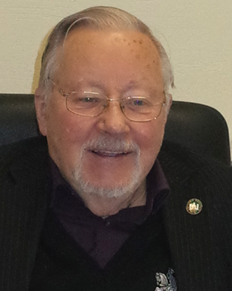

PROFESSOR VYTAUTAS LANDSBERGIS – PROFESSOR IRENA VEISAITE
Journalist: Dalia Cidzikaite
Photographer: Patrick Murphy
Questions prepared by Aage Myhre
A few days ago we sat down with two of Lithuania's most famous professors for a so-called double interview. We wish in the future to run similar double interviews here in VilNews; with leading Lithuanians in politics, economics, culture, science and so on. Simply because we think this may give you, dear readers, new insights and knowledge about the persons and also about historical and contemporary Lithuania.
Professor Vytautas Landsbergis and Professor Irena Veisaite were both born in Lithuania’s interwar capital Kaunas around 1930 – she a Jew who miraculously survived Holocaust, he a genetic Lithuanian who came to lead Lithuania’s revolution against the Soviet occupiers 25 years ago.
The interview with the professors will be published in our next edition of VilNews.
- Bookmark :
- Digg
- del.icio.us
- Stumbleupon
- Redit it
- Posted by - (0) Comment
Fearful of Russia, Lithuanian
volunteers sign up fearing
a repeat of Ukraine

MEMBERS OF THE LITHUANIAN RIFLEMEN’S ASSOCIATION ON A WEEKEND EXERCISE
Finishing his working week as a lawyer, Robert Juodka puts on his fatigues, loads his assault rifles into the car and heads off to the woods to take part in training. He and his comrades regard their “war games” as deadly serious; preparations for resisting a Russian invasion.
The Lithuanian Riflemen’s Union, which was disbanded by the country’s communist government, now has 10,000 members. New recruits join every week. The age range is wide, but a hard nucleus is being formed of former service personnel. And experienced foreign volunteers may be admitted in the future. Many fear that what has happened to Ukraine may be revisited in Lithuania.
THIS IS FROM AN ARTICLE IN THE BRITISH NEWSPAPER “INDEPENDENCE”.
Read the full article here: http://www.independent.co.uk/news/world/europe/fearful-of-russia-lithuanian-volunteers-sign-up-fearing-a-repeat-of-ukraine-10126321.html
- Bookmark :
- Digg
- del.icio.us
- Stumbleupon
- Redit it
- Posted by - (2) Comment
THIS ARTICLE, ABOUT THE HISTORY OF LITHUANIA, REACHED
ONE MILLION PERSONS AROUND THE WORLD IN ONLY ONE MONTH!
Lithuania – a country
you may think you know –
but do you really?
Text/research: Aage Myhre
We posted this article on one of our VilNews Facebook pages (www.facebook.com/VilNews) a few weeks ago. The article is about a seemingly 'boring' theme, namely the history of Lithuania.
But then it turns out that the article gets huge attention and reaches close to one million people worldwide in a matter of days. Probably never before have so many in such a short time been learning about the History of Lithuania!
For us who have worked with VilNews for many years this is yet another confirmation that Lithuania is of great interest to people around the globe if things are presented in attractive ways.

Did you know that Lithuania was a world super power – much longer than
USA has been – and Europe's largest country for more than 300 years
(1300-1600), stretching from the Baltic Sea to the Black Sea?
https://vilnews.com/2012-02-a-world-superpower-for-300-years
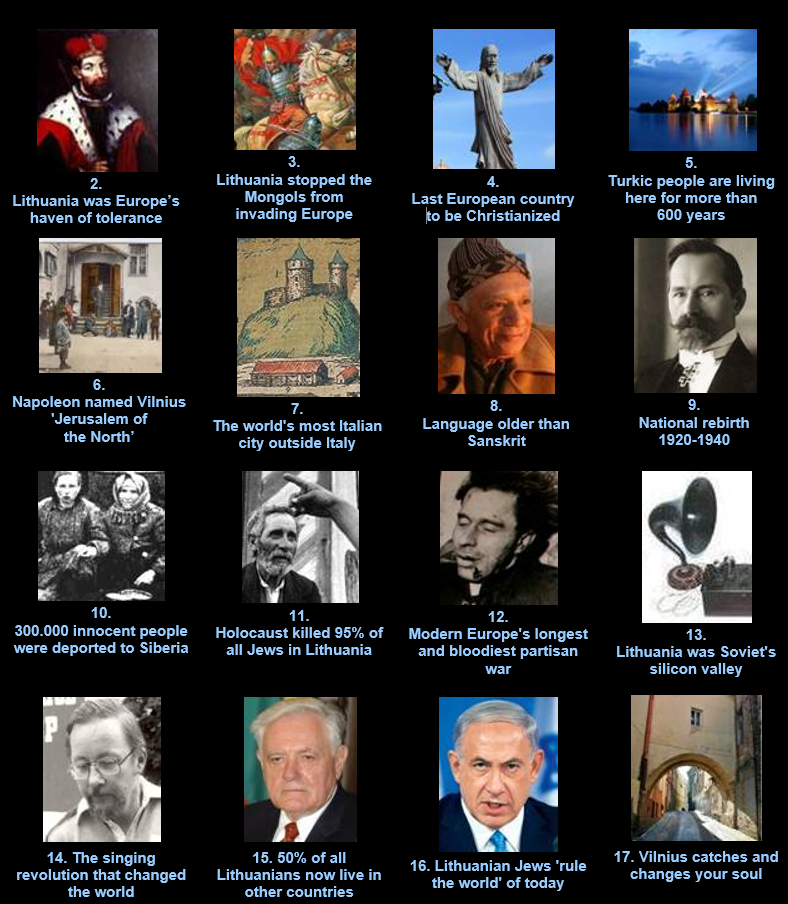
Read more...
- Bookmark :
- Digg
- del.icio.us
- Stumbleupon
- Redit it
- Posted by - (0) Comment
All Saints’ Day in Lithuania

PHOTO: WWW.LIETUVA.LT
November 1st, people of the Christian Faith all over the world celebrate All Saints’ Day. In
While in modern times, this day involves visits to cemeteries to decorate graves, attending Church and get
Read more at https://vilnews.com/2011-01-all-saints-day
- Bookmark :
- Digg
- del.icio.us
- Stumbleupon
- Redit it
- Posted by - (0) Comment
Closer bilateral ties
China – Lithuania
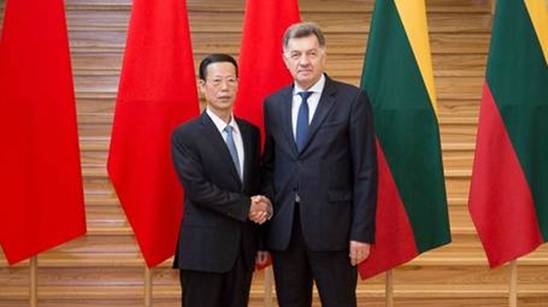 CHINESE VICE PREMIER ZHANG GAOLI AND
CHINESE VICE PREMIER ZHANG GAOLI AND
LITHUANIAN PRIME MINISTER ALGIRDAS BUTKEVICIUS
Zhang urged the two countries to further enhance mutual
Zhang said both sides should strive for breakthroughs in cooperation on major projects in infrastructure development and other areas. He said China is willing to participate in the construction of the Rail Baltic project in an appropriate form in a bid to complement each other and achieve mutual benefit and win-win situation.
Read more...- Bookmark :
- Digg
- del.icio.us
- Stumbleupon
- Redit it
- Posted by - (0) Comment
From Chicago to Paris – then by
car through Europe to Lithuania!

AMERICAN-LTUHUANIAN DIANA PAULIŪTĖ CLARISSE,
WITH HUSBAND AND SON, ON THEIR WAY THROUGH EUROPE
By Diana Pauliūtė Clarisse
Phd in Chemistry, Chicago USA
For about an hour now the two GPSs have been cooing two different directions. Our Tom Tom brought from home was telling us to ”turn left when possible”, while the GPS mounted in the rental car is having us move ever Northeast. My husband is saying we should listen to our Tom Tom. That would have been a good idea I think as we come to an abrupt standstill. The cars in front of us line up in a row looking like it goes on forever. Some of the drivers are standing next to their cars chatting away with other drivers as though they had been there all day. There must have been an accident, I say. The time is late in the afternoon, we have been perhaps 20 hrs on the road.
Read more...- Bookmark :
- Digg
- del.icio.us
- Stumbleupon
- Redit it
- Posted by - (5) Comment
Letter from a Lost Shtetl
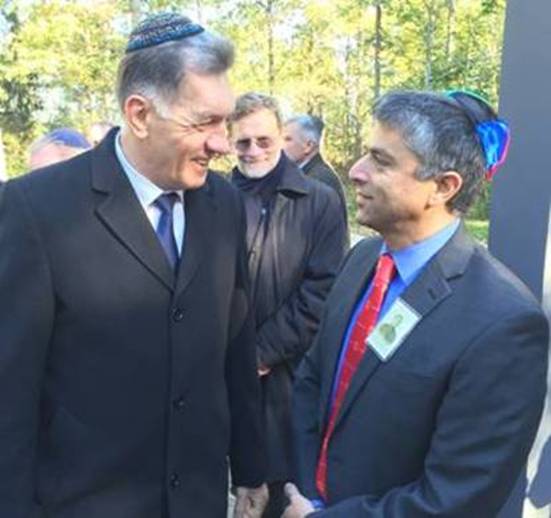
GRANT ARTHUR
PRIME MINISTER ALGIRDAS BUTKEVICIUS
By Grant Arthur
California, USA
Lithuania is changing. Clearly, my Grandfather would be proud to be here.
Nothing stays the same. Lithuania is experiencing a defined period of rediscovering its roots as an open and tolerant society. However, there is still a long way to go.
As I write on this crisp autumn morning, standing in the gentle sunlight, amongst recently restored Jewish tombstones of a lost shtetl in Northern Lithuania called Seduva, I am struck by the societal changes I see evolving.
Read more...- Bookmark :
- Digg
- del.icio.us
- Stumbleupon
- Redit it
- Posted by - (1) Comment
NEW book by Yves
Her intelligence
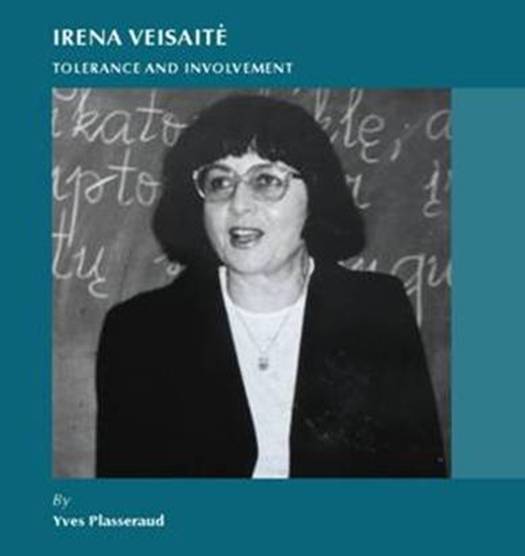
THE NEWLY PUBLISHED BOOK ABOUT IRENA VEISAITE
By Yves Plasseraud,
Paris, France
- Bookmark :
- Digg
- del.icio.us
- Stumbleupon
- Redit it
VilNews e-magazine is published in Vilnius, Lithuania. Editor-in-Chief: Mr. Aage Myhre. Inquires to the editors: editor@VilNews.com.
Code of Ethics: See Section 2 – about VilNews. VilNews is not responsible for content on external links/web pages.
HOW TO ADVERTISE IN VILNEWS.
All content is copyrighted © 2011. UAB ‘VilNews’.

 Click on the buttons to open and read each of VilNews' 18 sub-sections
Click on the buttons to open and read each of VilNews' 18 sub-sections 





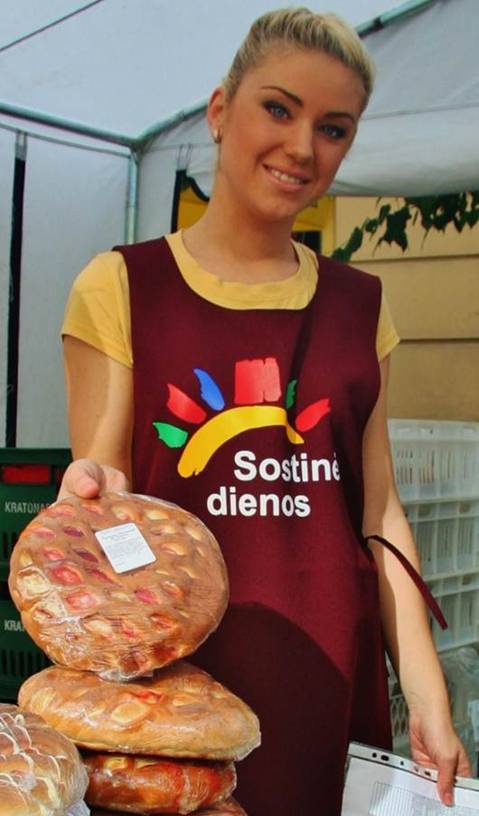











.jpg)



